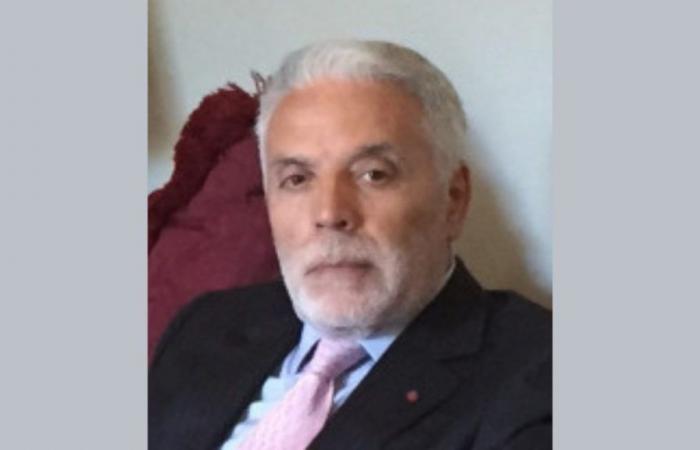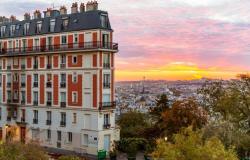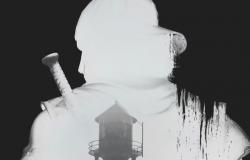On June 12, 2024, the rector of the Grand Mosque of Paris (GMP), Chems Eddine Hafiz, launched an appeal to Muslims in France to urge them to vote in the upcoming legislative elections in France. He invited imams to raise awareness among their followers and call on them to mobilize against the extreme right.
Hafiz’s call came the day after a long meeting he had with the Algerian president, who received him in Algiers.
Members of the National Rally (RN) immediately protested against what they described as“unacceptable interference” Algerian authorities in French internal affairs. Aymeric Chauprade, former MEP, wanted to remind the rector of the GMP, “that he is bound by a certain duty of reserve on the political level. We ask him to take care of the faith of his faithful, not of their vote and even less to behave as relay of a foreign government.
Since its existence, the GMP has been involved in various controversies and debates. Some concerned its internal management, notably questions of financial transparency and governance. Others have been linked to political controversies, such as the influence of the Algerian government on its activities or the statements of its representatives on sensitive issues such as secularism and the integration of Muslims in France.
The idea of building a Muslim place of worship in Paris was born at the end of the 19th century with the support of Sultan Hassan I (1873-1894) and the Ottoman Sultan in particular. The mosque was finally built in the 1920s as a “gesture of recognition” to North African Muslims who had fought alongside the French during the First World War and to symbolise Franco-Muslim unity. The GMP occupies an emblematic place in the heart of the French capital, in the Vᵉ district, not only as a religious and cultural institution but also as a monument to original Moroccan-style architecture topped by a 33-meter minaret.
The GMP was built thanks to a subsidy from the French state, granted in derogation of the 1905 law on the separation of churches and state at the Society of Habous and Holy Places of Islam. This association, created with the agreement of Sultan Moulay Youssef, the Bey of Tunis and the Mufti of Algiers, and chaired by Abdelkader (Kaddour) Benghabrit, a French civil servant of Algerian origin, was responsible for the construction and management of the mosque.
The inauguration took place on July 15, 1926 in the presence of French President Gaston Doumergue and Sultan Moulay Youssef. Benghabrit was appointed director of the mosque and the Muslim institute of Paris, positions he held until his death in 1954.
Algerian government takeover
In the absence of statutory provisions for the appointment of the director, the French government appointed Hamza Boubakeur to this position. The Muslim Institute was then administratively attached to the Ministry of the Interior, anxious to counter the activism of Moroccan and Algerian nationalists. In 1982, Abbas Bencheikh El Hocine succeeded Boubakeur.
At the same time, after the withdrawal of the supervision of the French administration, Algeria became involved in financing the budget of the GMP, which allowed the Algerian government to have a right of oversight over the management of the institution and the appointment of its director.
The rectors of the Grand Mosque of Paris have always been Algerians. In addition to those mentioned above, Tedjini Haddam has succeeded one another at the head of the mosque (1989-1992), Dalil Boubakeur (1992-2020) and finally Chems-eddine Hafiz (since 2020).
And rector controversial
The current rector of the Grand Mosque of Paris, Hafiz, is a controversial figure. His personality and positions have provoked varied reactions within the Muslim community and beyond. His “election” in 2020 to everyone’s surprise and in suspicious conditions, described by his detractors as a “hold-up”, following the resignation of Dalil Boubakeur, raised questions including in Algeria where he was criticized for his links with former President Bouteflika. More recently, in the aftermath of the Hamas attacks of October 7, 2023, he attracted the wrath of the Algerian press, which criticized him for having equated the aggressor and the attacked. Newspapers close to the government reported the «convocation» in Algiers of the rector and his deputy, an officer of the Algerian security services. They expressed fear that this important religious institution would escape the control of the Algerian regime.
A former Polisario lawyer, Hafiz is poorly regarded by the Moroccan community. His polarizing political statements, his close ties to Algiers and his hostility to Morocco did not predestined him to lead a symbolic institution of Islam in France and to position himself as an arbiter above the divisions between the different Muslim communities. He revealed another side of his personality by making vulgar remarks to a contradictor on a social network at the end of last Ramadan.
Beyond the personality of its rector, the GMP has over time become a relay for the Algerian system and its services, which have made it a tool of influence in the service of Algerian policy in France. In December 2020, the Algerian ambassador in Paris bluntly declared that “The Great Mosque of Paris is first and foremost Algerian and will never be anything else.”
For its part, Morocco seems to have put this subject on the back burner. Thus, the ceremonies of October 19, 2022 commemorating the centenary of the GMP took place in the absence of any Moroccan representation. Questioned on December 17, 1989 about a possible dispute, the late King Hassan II declared: “This Mosque was inaugurated in 1926 by my grandfather. It was Morocco that gave three-quarters of the subsidies so that the mosque would be paid for from the habous of the three countries: Algeria, Morocco, Tunisia. And since this mosque has existed, its management has never returned to Morocco. Because if Kadour Ben Ghabrit, may God rest his soul, was an Algerian, although he was a Moroccan civil servant seconded to my father as head of protocol.”
Hassan II was apparently irritated by this situation because he immediately announced that he intended to ask the mayor of Paris, Jacques Chirac, “to sell us land, and we will, by subscription, build a mosque where we will place a Moroccan, Sunni imam.” As proof of his disappointment, the late sovereign added: “And you will see then, at that time, as when there is a stack of unshelled hay that the wind will separate the good seed by itself and all that is straw and others will go to another side. You will see that all the good Muslims will come for the most part to our mosque.”
In the event of a victory by the RN in the next elections, official relations between the French authorities and the GMP and its rector could become strained. The French far right has never looked favorably on the presence of a mosque in the heart of Paris. In 1926, Charles Maurras expressed his reservations on the subject in L’Action française, considering the construction of this “the trophy of the Koranic faith on this Sainte-Geneviève hill where all the greatest doctors of anti-Islamic Christianity taught represents more than an offense to our past: a threat to our future…”
This text, described as “visionary”has been republished several times since, most recently in Résistance républicaine in 2015.






